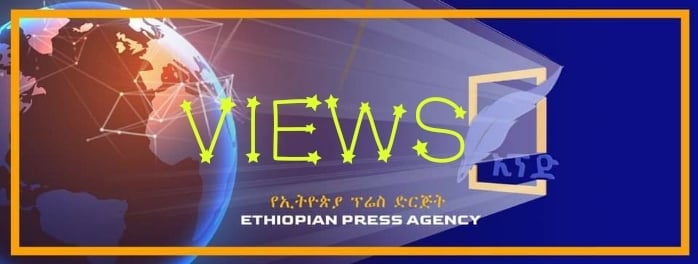
BY LAKACHEW ATINAFU
The Sphere of International Diplomacy demands nation to identify enemy and selecting friend and playing cards well in establishing cordial relationships. The US–Ethiopia tie traveled distant and bears fruit though subjective and wrong perception about Ethiopia left the relation in the limbo.
Facts born out of war have a majestic power to reveal hidden agendas and dormant volcanoes. The Neo Lord Luggard’s thought of indirect rule continue to function in Africa. The US’s lunatic attitude towards Ethiopia is an ill wind as it disgraced and paradoxes with “In God we trust” are they sure?
Ethiopia has been on the agenda list of the U.S. Congress for several decades. Sadly, Ethiopia has often been referred to as a country where serious human rights violations and humanitarian crises occur. While there are several convincing reasons for the Congress to be seized of evolving developments in Ethiopia, matters have often been misrepresented and politicized. From a diplomatic point of view, a strategic partnership entails an exceptionally close relationship between countries or other entities that are vital to promoting each other’s strategic interests. Strategic partnerships are mostly created with highly valued partners, which are carefully selected based on a realistic assessment of the significance of the partnership to the long-term interests of the nation concerned.
However, this does not necessarily mean that both countries should recognize each other as strategic partners. Country X may identify country Y as a strategic partner, while the latter may not identify the former as its strategic partner depending on the countries’ interests. Customarily strategic partnership is reflected through regular engagements, joint ministerial commissions, and other joint institutional mechanisms. Mostly states institutionalize strategic partnerships. Yet, there are no universally agreed or specific criteria to identify strategic partners. Even a country may not follow a uniform standard to identify and categorize its partners as strategic and non-strategic.
An (ordinary) partnership is a relationship created as a part of the standard diplomatic practice based on the idea that international relation is progressive. Partners are important countries, organizations, or other entities but not valued as important as the strategic partners. This kind of partnership may not require institutionalized engagement.
In the past 16 months, the Congress has been particularly interested in Ethiopia because of the armed conflict in the Northern part of the country, which started on November 04, 2020, after the TPLF attacked the Ethiopian National Defense Force bases in the Tigray region. The House Foreign Affairs Committee, the Senate Foreign Relations Committee, and their relevant sub-committees have issued several statements expressing their concerns on the conflict, the role of external actors, and the human rights and humanitarian issues associated with the conflict. But both Committees have been criticized for taking a biased position that does not reflect the facts on the ground, equating the legitimate federal government with the rebel groups.
In the past few months, the introduction to and consideration by the House Foreign Affairs Committee and the Senate Foreign Relations Committees of the House Draft Bill H.R.6600 and Senate Draft Resolution S.3199, respectively, have been the most alarming congressional developments.
H.R.6600 was introduced under the guise of supporting Ethiopia’s effort to bring about peace and stability and build a democratic system. It was directly introduced to and considered by the House Foreign Affairs Committee without prior deliberation by the relevant sub-committee.
The Draft Bill was first introduced by Congressman Tom Malinowski, a Representative of New Jersey and Vice-Chair of the Foreign Affairs Committee, widely known for his unfair position on issues concerning Ethiopia. Congressman Tom Malinowski and the Chair of the House Foreign Affairs Committee, Gregory Meeks, who has taken a consistently adverse role in the conflict in Northern Ethiopia, are said to have made deliberate efforts to get the Draft Bill passed in a rushed process.
S.3199 was initially introduced on November 4, 2021, under the title “Ethiopia Peace and Democratization Act.” After waiting for some months and following the introduction of H.R. 6600, the Chairperson of the Senate Foreign Relations Committee Reintroduced S.3199 with an amended title, “Ethiopia Peace and Democracy Promotion Act of 2021.” S.3199 was introduced as a Companion Resolution to reinforce the House process at the Senate.
Accordingly, H.R. 6600 and S.3100 have by and large the same content with minor differences in style and tone. Both bills have been considered and approved by their respective foreign affairs committees and are awaiting consideration by the general House and the Senate floor.
Both H.R. 6600 and S.3199 proposed authorization and direction to the U.S. administration to take a series of coercive measures, including extended unilateral sanctions on Ethiopia. These include individual sanctions, including on those from the parties to the conflict and other Ethiopian nationals living in and outside the country, halt on support provided by the U.S. and International Development Finance corporation, cut security and military assistance, halt assistance provided through international financial institutions, restrict Ethiopia’s collaboration with Non-Governmental Organizations (NGOs), and discourage external partners who provide security and military assistance to Ethiopia.
If adopted, the Bills will have serious adverse effects on Ethiopia, including undermining Ethiopia’s sovereignty, crippling its economy, isolating Ethiopia, increasing its vulnerability to domestic and external threats, blocking citizen and Diaspora support, undermining the ongoing human rights investigation process, and efforts to ensure accountability, and undermines domestic efforts peace and dialogue processes. Alarmingly, ordinary civilians will be the primary victims of the sanctions proposed by the Bills.
Although the Draft Bills are introduced under the guise of protecting human rights, peace, stability, and democracy, their content tells that they can only have counterproductive effects on all of these issues. The Bills contain partly non-existent allegations and propose unworkable foreign prescriptions as a panacea for Ethiopia’s peace, human rights, and humanitarian challenges.
The Bills suggest non-existent human rights conclusions and impractical human rights mechanisms that contradict or undermine the ongoing domestic efforts. Like many other sanctions, the sanctions proposed in the Draft Bills are not expected to bring about the required behavioral change of the parties in the conflict. In fact, the Bills may generate immoderation and anti-American sentiments. Moreover, the Bills will disturb Ethiopia’s participation in the regional and global counterterrorism and peacekeeping efforts.
More importantly, the draft bills threaten to undermine the cordial and longstanding relations between Ethiopia and the U.S. By suggesting coercive measures rather than constructive engagement between the two countries; the draft Bills threaten to undermine the bilateral cooperation between the two countries, including regional and global issues of common interest such as counterterrorism and climate change issues. Therefore, the Bills, if adopted, will also affect U.S.’s strategic national interests.
To avert the undesirable consequences of the Draft Bills, all interested stakeholders in the U.S. and Ethiopia should do their best to get them withdrawn from the Congressional Calendar. More importantly, the bills will indiscriminately affect all Ethiopians, including those in the rebel-controlled territories. Therefore, the matter should not be left to the Ethiopian Government or the Ethiopian Diaspora.
The Ethiopian government should redouble its diplomatic effort in the U.S. It should boost the capabilities of its diplomatic institutions, including the Ministry of Foreign Affairs and the Embassies abroad. The Ministry of Foreign Affairs should design a workable strategy and specific action plan that should be speedily implemented. Diplomatic engagements should be conducted at all levels, including the Prime Minister, Deputy Prime Minister and Foreign Minister, the Speakers of the House of People’s Representatives and the House of Federations, diplomats, other officials, academicians, public figures, and all active citizens. Sending a special high-level delegation accompanied by qualified experts to Washington DC could also be important. In the long run, Ethiopia should establish strong relations with the leadership of the House Foreign Affairs Committee and the Senate Foreign Relations Committee.
The diplomatic efforts should, however, be supported by concrete actions at home. The positive steps were taken by the government, including the indefinite humanitarian truce, the permission of humanitarian access by air and by land, facilitations for an inclusive national dialogue, permission for joint human rights investigations by the U.N. and Ethiopian Human Rights Commission, and the establishment of a Ministerial Taskforce to ensure accountability, and the release of high-profile prisoners including top TPLF leaders are essential steps that should be sustained. But these positive efforts should also be reciprocated by the Tigray forces, including the TPLF rebel group, if they are to be sustained. The ethnic Tigrayan forces should cease provocations and military operations in the Amhara and Afar Regions and allow unhindered humanitarian aid.
The international community should also welcome the positive actions taken by the Ethiopian government and build on them to bring a complete end to the conflict and ensure lasting peace in the country. Instead of coercive measures, the international community should constructively engage with the Ethiopian authorities.
Editor’s Note: The views entertained in this article do not necessarily reflect the stance of The Ethiopian Herald
The Ethiopian Herald April 17/2022




